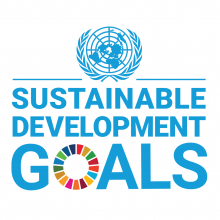Home
Economic growth, employment and poverty in developing economies: A focus on Arab region
The objective of the paper is to examine the nexus between economic growth, employment, poverty and inequality in developing economies, and the Arab countries in particular, during the MDGs period (1990-2013).
E-Learning Series on Public-Private Partnerships
The training materials of this online course are for self-study and are tailored to provide a basic minimum knowledge of various issues that policy-makers dealing with PPPs have to be aware of. While the courses are general in nature, most of the examples are from the infrastructure sectors, in particular the transport sector.
Equality in the New Global Agenda: Integrating a Gender Perspective in the Implementation of Sustainable Development Goals 1 and 2 in the Arab Region
A close analysis of the 2030 Agenda for Sustainable Development, adopted by the international community in September 2015, reveals that some gender issues should be further emphasized in the Sustainable Development Goals (SDGs), so that social justice and gender equality are realized. SDGs and targets are also meant to be adapted to regional, national and local contexts.
Multidimensional Poverty in Tunisia
The paper provides an in-depth analysis of the prevalence, distribution (geographical and by gender, among other household socio-economic characteristics), and severity of multidimensional poverty in Tunisia. The paper makes use of the Arab Multidimensional Poverty Index Methodology and data from the Tunisia MICS (2011), a survey conducted by the League of Arab States.
Multidimensional Poverty in Sudan
The paper provides in-depth analysis of the prevalence, distribution (geographical and by gender, among other household socio-economic characteristics), and severity of multidimensional poverty in Sudan.
Multidimensional Poverty in Mauritania
The paper provides an in-depth analysis of the prevalence, distribution (geographical and by gender, among other household socio-economic characteristics), and severity of multidimensional poverty in Mauritania. The paper makes use of the Arab Multidimensional Poverty Index Methodology and data from the Mauritania MICS (2011), a survey conducted by the League of Arab States.
Multidimensional Poverty in Algeria
The paper provides an in-depth analysis of the prevalence, distribution (geographical and by gender, among other household socio-economic characteristics), and severity of multidimensional poverty in Algeria. The paper makes use of the Arab Multidimensional Poverty Index Methodology and data from the Algerian MICS (2012) survey, a survey conducted by the League of Arab States.
Multidimensional Poverty Index for Middle Income Countries: Findings for Jordan, Iraq and Morocco
This paper portrays the situation of the Multidimensional Poverty Index (MPI) in three Arab middle-income countries: Jordan, Iraq, and Morocco.
Arab Multidimensional Poverty Report
The Arab Multidimensional Poverty Report, the first of its kind following the launch of the 2030 Agenda, is the result of three years of collaboration between the League of Arab States’ Council of Arab Ministers for Social Affairs, the Economic and Social Commission for Western Asia (ESCWA), the United Nations Children's Fund (UNICEF), and Oxford Poverty and Human Development Initiative (OPHI).
Multidimensional Poverty Profile in Egypt
The paper provides an in-depth analysis of the prevalence, distribution (geographical and by gender, among other household socio-economic characteristics), and severity of multidimensional poverty in Egypt. The paper makes use of the Arab Multidimensional Poverty Index Methodology and data from the Demographic and Household Survey (DHS) for Egypt in 2014.
